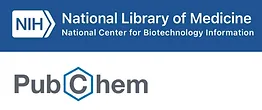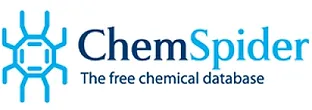AGGIORNAMENTO SCIENTIFICO IN TEMPO REALE FORNITO DA:

Top News
- How the Brain Tells Imagination from Reality, And When It Failsby Neuroscience News on 5 Giugno 2025
A new study identifies the brain mechanisms that help us distinguish real experiences from imagined ones. Researchers found that the fusiform gyrus—a region involved in visual processing—plays a key role in telling reality from imagination, especially when we mentally picture something vividly.
- Mice Experience Rubber Hand Illusionby Neuroscience News on 5 Giugno 2025
A new study shows that mice, like humans, can experience a sense of embodiment toward an artificial limb—similar to the famous rubber-hand illusion. When their real limb was hidden and both real and fake limbs were brushed in sync, mice visually tracked a threat to the fake limb, indicating perceived ownership.
- Can AI Be Funny? Yes, But Not Funnier Than a Humanby Neuroscience News on 5 Giugno 2025
A new study shows that AI can create internet memes rated as funny and shareable as those made by humans—but the best jokes still come from people. Researchers compared memes made by humans, AI, and human-AI teams, using classic templates like Doge and Futurama Fry.
- Dopamine Neurons Map Future Rewards, Not Just Past Onesby Neuroscience News on 5 Giugno 2025
Populations of dopamine neurons don't simply signal reward prediction errors—they encode rich maps of possible future outcomes, including when and how much a reward might be. This diverse, adaptable neural code mirrors cutting-edge AI strategies known as distributional reinforcement learning.
- Family Time and Parental Bonding Linked to Better Sleep in Preteensby Neuroscience News on 5 Giugno 2025
A new study reveals that strong family relationships and parental engagement are linked to longer, healthier sleep in children aged 9 to 11. Eating dinner together, planning the next day, and participating in community activities were among the habits most associated with sufficient sleep duration.
- AI Diagnoses Eye Movement Disorders from Homeby Neuroscience News on 5 Giugno 2025
Researchers have developed an AI-based diagnostic tool that uses smartphone video and cloud computing to detect nystagmus—a key symptom of balance and neurological disorders. Unlike traditional methods like videonystagmography, which are expensive and cumbersome, this deep learning system provides a low-cost, patient-friendly alternative for remote diagnosis.
- HIV Drugs Linked to Lower Alzheimer’s Riskby Neuroscience News on 5 Giugno 2025
FDA-approved HIV drugs targeting reverse transcriptase (RT) may reduce Alzheimer’s risk by blocking similar enzymatic activity in the aging brain. Scientists discovered unexpected RT activity in neurons of healthy and Alzheimer’s brains, tracing it to truncated LINE1 elements—ancient genetic sequences capable of copying themselves via RT.
- Multitasking Is Many Skills, Not Oneby Neuroscience News on 5 Giugno 2025
A new study reveals that multitasking isn’t a single, universal skill, but a combination of broad cognitive abilities and task-specific skills. Researchers tested 224 participants across nine different multitasking challenges, including concurrent tasks, task-switching, and complex multitasking.
- Facial Stimulation Clears Brain Waste and Boosts Aging Mindsby Neuroscience News on 5 Giugno 2025
Researchers have discovered a safe, non-invasive way to enhance the brain’s waste clearance system by mechanically stimulating lymphatic vessels just beneath the facial skin. This gentle technique significantly improves cerebrospinal fluid (CSF) drainage—a critical function that declines with age and contributes to cognitive disorders like Alzheimer’s.
- New Eye Implant Slows Retinal Degenerationby Neuroscience News on 5 Giugno 2025
The FDA has approved ENCELTO, the first treatment for macular telangiectasia type 2 (MacTel), a rare degenerative eye disease that gradually impairs central vision. ENCELTO is a surgically implanted device that delivers a steady dose of a neuroprotective protein called CNTF to preserve retinal cells and slow disease progression.
- Hallucinogens Linked to Milder PTSDby Neuroscience News on 4 Giugno 2025
In a unique real-world study, researchers examined the psychological effects of trauma on survivors of the October 7 Nova Festival attack in Israel, focusing on their use of mind-altering substances. Among 343 participants, those who had taken classic psychedelics like LSD or psilocybin reported significantly lower anxiety and PTSD symptoms than those who used other substances or none at all.
- Nostalgic Tunes Trigger Stronger Urge to Dance Than Familiar Hitsby Neuroscience News on 4 Giugno 2025
A new study reveals that nostalgia plays a powerful role in making us want to dance, even more so than familiarity with a song alone. Researchers asked young adults to rate how much various pop hits made them want to tap, move, or dance, as well as how nostalgic and familiar the songs felt.

















